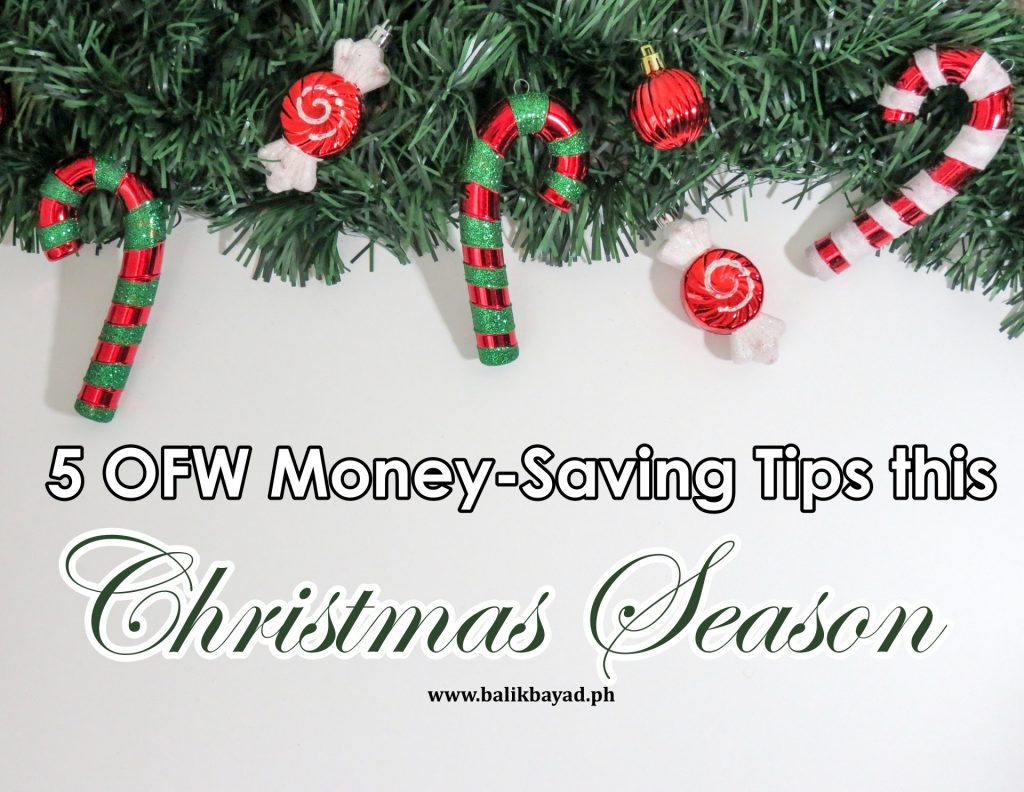2017 is about to end. How is your money habits so far? Were you able to save enough for this year? Did you meet your target savings, which you, yourself set as the year started? Or are you back to the same ol’ mistakes?
Don’t worry. You still have few weeks left to change old habits and start a positive attitude towards money. In line with this, here are money habits you need to break – ASAP:
Bad Money Habit No. 1: The “Libre naman dyan” mentality.
Admit it. Every time you go home from abroad, friends, relatives, and even neighbors you don’t even know ask for you to treat them since you earn in dollars and in local vernacular, “big time ka naman.” While this seems harmless, doing this on a regular basis could affect your savings and financial future without you even noticing it. Plus, you don’t want to be labeled as “kuripot” so you give in to social pressure.
There’s nothing wrong with treating friends and family, but don’t do this on a regular basis or if there is no reason to celebrate. If you prefer to treat to celebrate a milestone, say a birthday or your kid’s graduation, you can still do so, but make sure to set a budget. Keep it simple but meaningful.
Bad Money Habit No. 2: Giving it all to your family.
What is the most common reason why Filipinos seek greener pastures abroad? It’s all because of opportunity – the opportunity to earn more and the opportunity to provide more for a better life of your family. That is a legitimate reason and you should give yourself a pat on the back for willing to make that sacrifice.
Here comes the problem: when you give all of your hard-earned money to fulfill the “now” for your family. This means you always end up sending a big chunk of your salary back home instead of saving for the rainy days or even setting aside some money for savings.
There’s nothing wrong with this, but make sure you keep a limit. You don’t want everyone in the family to be too dependent on you while you work 24/7. Go ahead and send them money, but make sure you also set aside a portion of your income for savings or Emergency Fund. This is a must.
Bad Money Habit No. 3: The Balikbayan Box syndrome.
You always have a big box, which you fill with items for every member of the family every time you pass by a store or if you have extra cash. Ideally, you send this once a year, but for you, you send one as soon as you fill up a box, which is usually every few months.
We get it. You want to make up for the time lost. Still, don’t let material things define your love and concern for your family. Material things won’t last forever and by the time you got back home, you wouldn’t even know that what you gave them a year before already made its way on the trask.
Bad Money Habit No. 4: The “Bahala na” attitude.
You said this several times, including those times when you were in financial trouble. Your faith is something you need to hold on, but don’t let it be the solutions to your problem, especially when you were at fault on why you are experiencing financial issues.
What you can do is to fix your finances and evaluate the areas where you can cut down. This way, you will avoid overspending and leave it up to the Higher One on how this problem will be solved.
Bad Money Habit No. 5: No investment.
Having a savings account is okay, but it will not be enough, especially if you are aiming for financial freedom. You need to diversify your portfolio, which means you need to consider other modes to grow your money.
What should you do? Invest. In fact, you can still make an investment even with less than P10,000 on your pocket. Before you do, make sure to read up or watch videos about how the stock market or UITF works. Get to know various investment options to help you decide the right tool for you.
Don’t wait for 2018 to start. Break these bad money habits and you are on your way to a better financial future,

 Pasko na naman! Surely, your family back home has a long list of bilin – and they are expecting to see every single item inside the balikbayan box. After all, you only go home once a year, so you want to make sure that every member of the family is happy.
Pasko na naman! Surely, your family back home has a long list of bilin – and they are expecting to see every single item inside the balikbayan box. After all, you only go home once a year, so you want to make sure that every member of the family is happy.